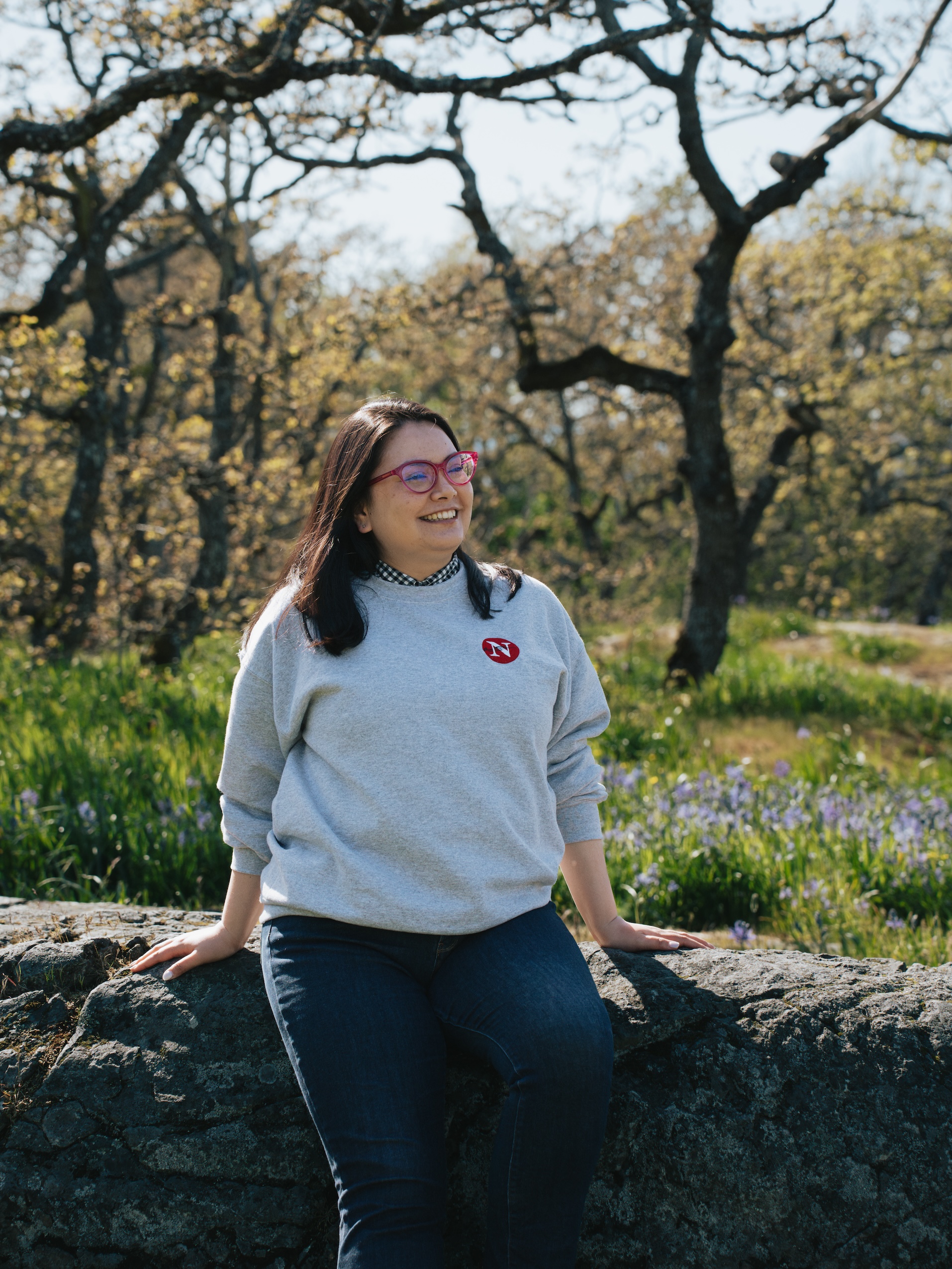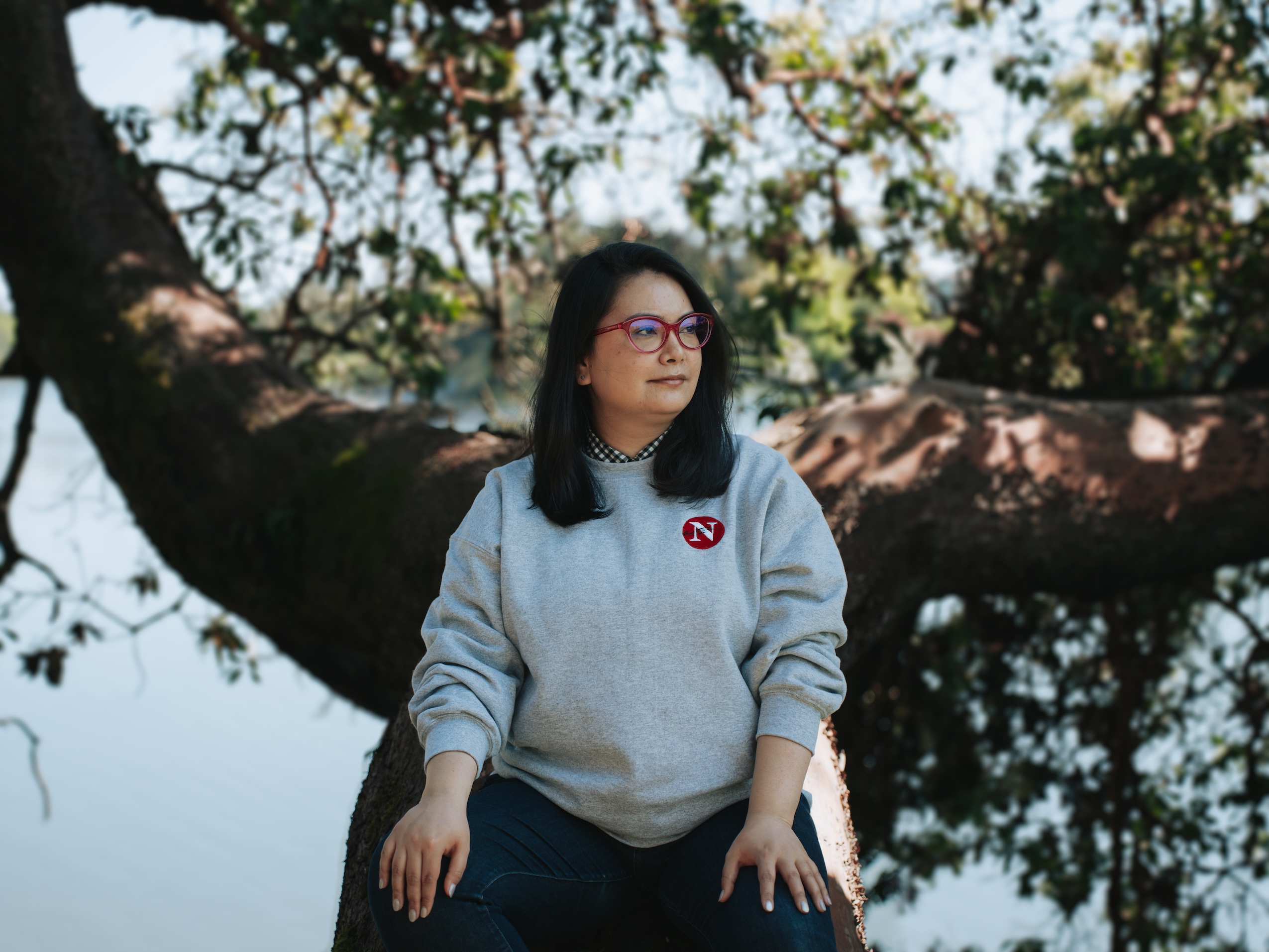
Hope for a huge, ancient and imperilled fish
First Nations are leading efforts to make sure lake sturgeon can find a home in...
Get the inside scoop on The Narwhal’s environment and climate reporting by signing up for our free newsletter.
They say herding cats is hard, but have you tried organizing two dozen journalists scattered across a vast country? Kyla Fitzgerald has welcomed the challenge.
Kyla is, and has been, many things: an oral historian, logistics wizard and lover of trash TV. The connective tissue, through it all, is people. “I’ve always been a people person,” she says. “I love to talk to people and I’ve always been curious about people.”
As The Narwhal’s membership and operations coordinator, Kyla’s diverse talents support the team and, critically, the growing community of more than 6,500 members who make our work possible with financial support.
“Those people are just the lifeline — they’re the lifeline of any organization. I’m really excited to help them and make them feel more connected to the organization.”
I chatted with Kyla about how she found a greater purpose in working with people, and the path that brought her into our pod.

I was in high school and — really cool — I got to go to an anti-bullying, anti-racism camp that used storytelling as a vehicle to elucidate various global topics and show how certain historical events had impacted people, and how they built resilience. They covered things like the Rwanda genocide, Holocaust survivors, victims of bullying, gay rights activism.
You could see the people for who they were, it wasn’t this arm’s-length way of learning about something. I got very, very passionate about human rights and community mobilization and education. And I was young and energetic and hopeful and optimistic about the world, so it was the perfect time to really go out there.
I was offered a research fellowship in grad school, and I knew I didn’t want to spend that time by myself in a library. One option was to join an oral history project, and so I started working with the Japanese Canadian community, because this project looked at their experiences of being forcibly uprooted and interned during the Second World War.
We were looking at multi-generational experiences over time. So, looking at how older generations are communicating their past, or not, and then how those later generations are trying to understand and reconcile the very complicated history that has impacted their family.
It was this very humbling experience, being able to go into somebody’s home and listen to their often very challenging story. But it was always such a privilege to be able to capture that for them, and learn about their history and learn about their experiences. It’s part of the reason why I really also connected with The Narwhal. Because when you work with people that closely and you see it on the frontlines so intimately, it just hits your soul in a different way.
I’ve been familiar with The Narwhal since its inception. And, in a previous role, I shared an office with The Narwhal in Victoria. There was a print edition of the magazine that was sitting on our coffee table, and I was really drawn to the photography and artistic design.
I love the long-form investigation work — I remember so clearly reading the Pacific Wild investigation. I think that really tapped into the broader values and vision of The Narwhal — stories that are bold, that are asking questions that maybe people aren’t always comfortable with, but are stories worth telling. Even though I had never worked in journalism, I feel like there’s a kinship in my own journey and the type of work that The Narwhal has always strived to do.

I’m really excited to help the internal team make this place the best that it can be, but also run the most efficiently: if you have tech problems, or — what clunky processes do we have that we can just make smoother and make everyone’s lives easier? I secretly nerd out on that stuff.
I love live music. I try to go to as many concerts as possible. I have a very overactive brain; live music is one of the few places where I can truly be in the present, and in the moment, and my brain just turns off.
I’m also a huge advocate of trash TV. I am begrudgingly still watching Vanderpump Rules — post scandal. Basically two of the main characters that were both in very serious relationships with two other cast members were secretly having an affair. It really exploded. And the latest season has been the aftermath.
And now there’s a rather controversial spinoff called The Valley, with previous cast members who had been kicked off for very egregious behavior both on- and off-camera. It’s very bizarre to watch because they were in their early 20s when they started but now they’re all in their 40s, having kids and living in the suburbs. But there’s still this insidious energy: we need to manufacture drama, we need to have chaos. It’s been a bit tough to work through but I’m committed.
Get the inside scoop on The Narwhal’s environment and climate reporting by signing up for our free newsletter. Angello Johnson’s shoulders burn, and his arms...
Continue reading
First Nations are leading efforts to make sure lake sturgeon can find a home in...

We’re excited to share that an investigation by The Narwhal is a finalist for the...

A new documentary, Nechako: It Will Be a Big River Again, dives into how two...
